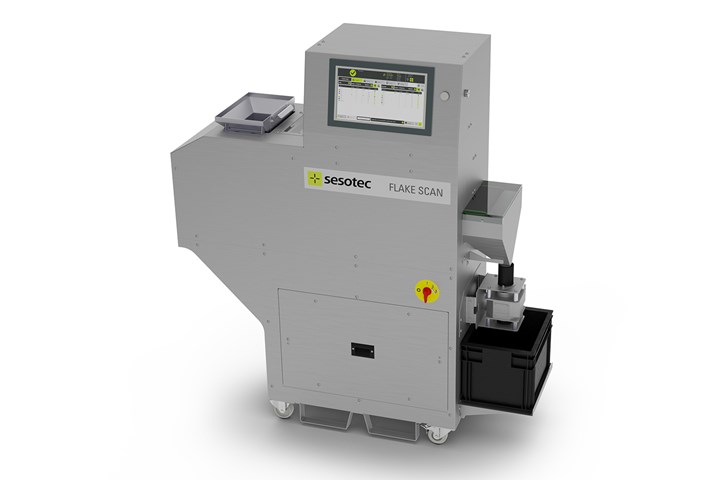Recycling: Analysis System Determines Quality of Plastic Flakes and ReGrind
The Flake Scan was developed to help reduce the effort involved in various analysis techniques.
Sesotec has launched its Flake Scan analysis system to determine the quality of plastic flakes and regrind.
The company says that the Flake Scan was developed to help reduce the effort involved in various analysis techniques. In a few minutes, the device can reliably determine the precise quality of plastic flakes and regrind.
The Flake Scan analysis system delivers data that can be quickly leveraged to make decisions about whether plastic flakes and regrind are pure enough for profitable use. Sesotec says that it can also provide insights into the effectiveness of an entire recycling process and help ensure that individual plant components are functioning as they should.
A combination of up to three sensors (color, near infrared, and metal) automatically provides precise, reproducible analyses of material samples by detecting color errors, plastic types and metallic contaminants. The composition of each batch of plastic flakes can be determined within minutes. Representative results can be reached with a sample volume as small as eight liters. At its maximum throughput, the Flake Scan can analyze up to 20 kilograms per hour. The device also reportedly offers easy operation, with an intuitive touchscreen as well as automated reporting and archiving.

The Flake Scan by Sesotec can quickly and confidently assess the quality of plastic flakes and regrind.
Related Content
-
Planned Facility to Produce Mechanically Recycled Polystyrene for Food Packaging
EGN, Tomra, and INEOS announced plans to collaborate on a new kind of recycling plant, to be located in Germany.
-
Robotic Sorters With AI Technology Deployed in Fresno Recycling Center
A grant from the Recycling Partnership enabled Implementation of RecycleOS Technology from Everest Labs.
-
Revalyu Breaks Ground on PET Recycling Facility in Georgia
Company expects new facility will be capable of chemically recycling 200 million pounds of post consumer PET per year.




